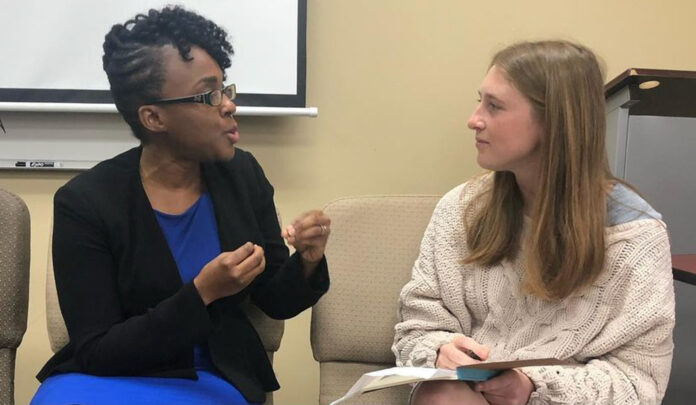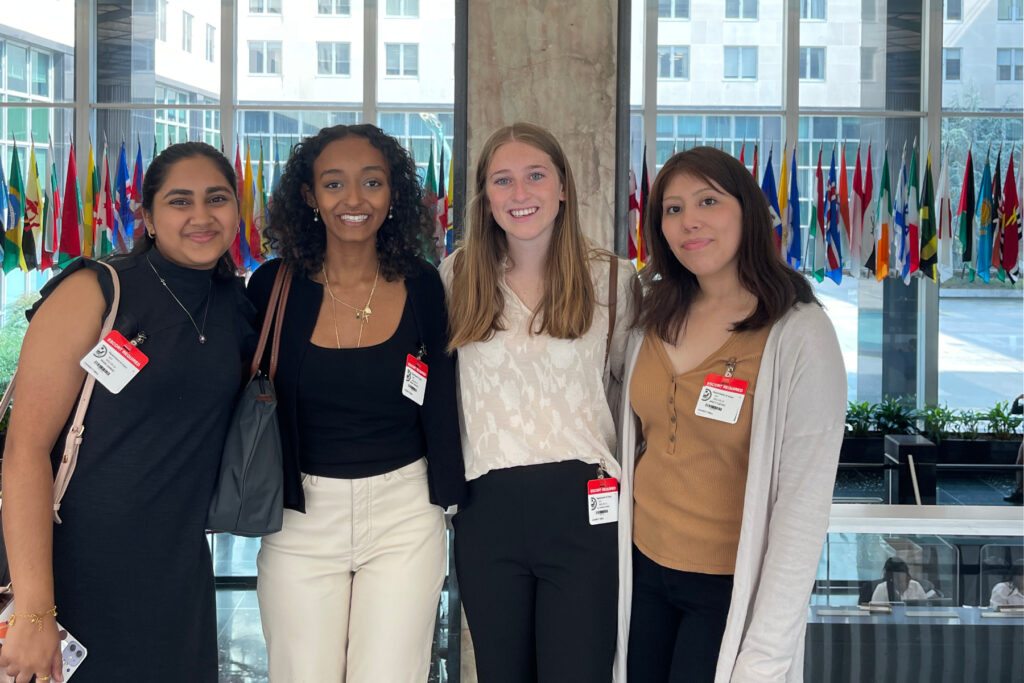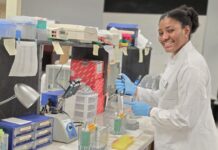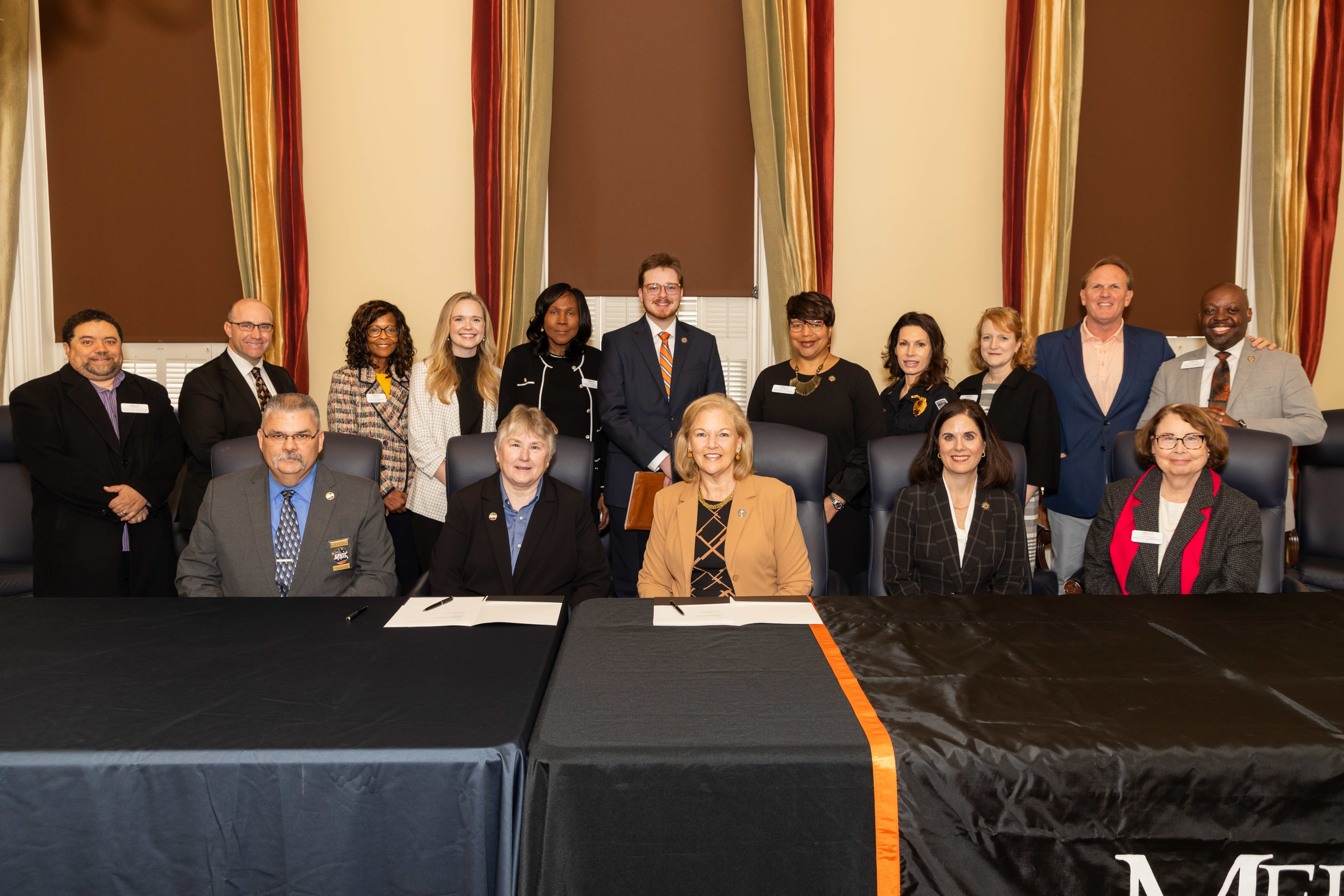
Mercer University students’ research on the Haitian diaspora in Georgia is helping the State Department engage with people from Haiti in the United States.
This spring, students in Dr. Katherine Roseau’s studies in Francophone cultures class identified Haitian churches, restaurants, nonprofits and other organizations in Georgia, and interviewed Haitian Americans about their experiences.
The work was done as part of the Diplomacy Lab, a public-private partnership between the State Department and academic institutions. Students were invited to visit the State Department in Washington, D.C., at the end of May.
“What I really liked about the idea of doing this was that it’s real life,” said Dr. Roseau, assistant professor of French in the College of Liberal Arts and Sciences. “It’s something that real people are going to use, and it’s going to maybe even affect relations between the U.S. and Haiti.”
Students used the internet to research the location of Haitian people in Georgia and then sent emails and made phone calls to the people they found.
“We conducted some calls asking them questions about their relationship to the diaspora, how they were still connected to their community in Haiti or if they’re still connected and in what ways, and different issues they were concerned about,” said Keeli Hennon, who graduated from Mercer in May with a double-major in global health studies and French. “But honestly, the phone calls were pretty challenging. A lot of us got people who didn’t really want to be interviewed.”
In April, students went to Good Samaritan Haitian Alliance Church in Lawrenceville, where they attended a service in French and Haitian Creole and interviewed church members about identity and how they are continuing cultural activities in the United States. Students learned Haitian Creole to greet the interviewee and then conducted the interview in French or English, depending on the interviewee’s preference.
“I wanted students to be able to meet the people that they were studying and to talk to somebody about why they moved to the U.S. from Haiti,” Dr. Roseau said. “The State Department wanted basic information, but with this project, my students and I wanted to go into the human side of things and hear individual stories about why they left, why they chose Georgia and what are their identities. Do they see themselves as Haitians or as Americans?”
Abigail Yemisrach, who graduated from Mercer in May with a double-major in public health and French, said talking to the people at the church reminded her how much U.S. immigration policy affects people’s lives.
“All throughout college I’ve learned of policies, like health policies or immigration policies, in my classes. I was able to see those policies influence and impact populations on a firsthand basis for the first time,” she said.
Hennon said: “Being in person getting to have a conversation with them about what you’ve been learning in class reminds me it’s not just theoretical stuff written in a book. The stuff we’re learning about affects real people, so it reminds me that it matters.”

Erika Burnett, strategic communications officer for the State Department’s Office of Haitian Affairs, said the students were “incredibly astute and curious,” going above and beyond the assignment.
“One of our big goals within the Office of Haitian Affairs is to engage with the Haitian diaspora and find a more systematic way to reach out to them and also to record their varied perspectives,” she said. “Two of our main questions that we seek to answer is who speaks on behalf on the Haitian diaspora and who is the Haitian diaspora? This gave us a lot more insight into the who of that part of that question. But also, with the impressions of the students and the professor, we were able to get a larger picture on who speaks on behalf of the Haitian diaspora.”
Hennon and Yemisrach were among four students from Mercer who visited the State Department in Washington, D.C., at the conclusion of the project.
While there, they met a foreign service officer, civil service officer and a contractor as well as talked to the people in the both the Office of Haitian Affairs and Office of Carribean Affairs. In addition, students visited the National Museum of American Diplomacy.
The Mercer students also met with those from Wilbur Wright College in Chicago, who examined the Haitian diaspora along the eastern seaboard as part of the same Diplomacy Lab project.









